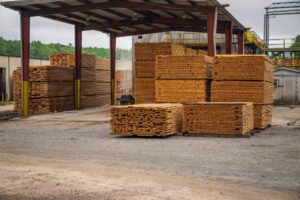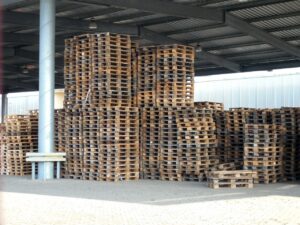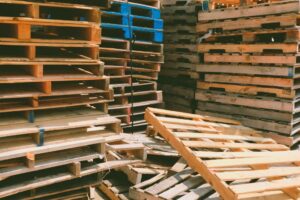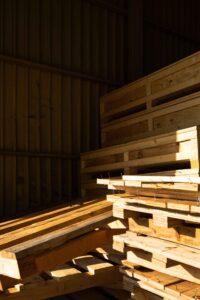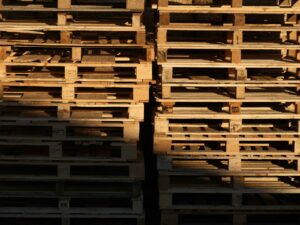In the realm of modern building materials, hybrid composites are increasingly prominent—especially those that combine renewable fibres with durable metal or alloy layers. One such innovative product is the Bamboo–Galvanised Iron (GI) Hybrid Composite Sheet in thicknesses from 2.5 mm to 6 mm. These sheets marry the sustainability and visual appeal of engineered bamboo with the corrosion-resistant, structural strength of GI, making them a strong contender for outdoor and industrial applications.
What Are Bamboo–GI Hybrid Composite Sheets?
Bamboo–GI Hybrid Composite Sheets are manufactured by layering a high-quality, resin-impregnated bamboo mat or laminate with a thin GI (galvanised iron) sheet or coating. The bamboo layer brings renewable-material benefits, while the GI layer provides metallic durability and structural reinforcement. According to specification information, the product category “Bamboo – GI hybrid composite sheets (2.5 mm to 6.0 mm)” is listed among engineered bamboo composite offerings.
Key features in the specification summary include: “High strength, Light weight, unbreakable, fire retardant, boil water/moisture resistant, non-corrosive, termite proof, thermal/electrical insulation, impact resistant. Suitable for exterior application. Does not require polish or paint.”
While exact numeric values for this model are not provided in the summary, the context of similar bamboo composite laminated sheets suggests high density, structured layering, and engineering to perform in outdoor/industrial environments.
Key Properties & Engineering Benefits
1. Thin Panel Thickness with Structural Performance
With sheet thicknesses of 2.5 mm to 6.0 mm, these hybrid sheets offer a slim format suited for overlay, cladding, roofing facades or panels without excessive bulk. Their composite structure allows them to perform far beyond what an equivalent plain wood or bamboo laminate sheet might.
2. Improved Durability and Corrosion Resistance
The inclusion of a GI layer enhances corrosion resistance and weather-resistance compared to pure bamboo or basic wood panels. Combined with resin-impregnated bamboo, the sheet is described as non-corrosive and suitable for exterior application.
3. Moisture, Termite and Fungus Protection
Like other advanced bamboo composite products in the specification range, the sheet is described as “boil water/moisture resistant, termite proof, non fungus”. These attributes are vital in outdoor or industrial settings where exposure to humidity, pests and fungal growth is a concern.
4. Thermal/Electrical Insulation and Impact Resistance
The product catalogue indicates that these composite sheets offer thermal and electrical insulation as well as impact resistance—features that make them useful in industrial or exposed environments where temperature swings, electrical insulation or mechanical stress may matter.
5. Sustainability Aspect
By using bamboo—a fast-growing, renewable resource—for a significant component of the composite, the material improves its sustainability credentials compared to purely metal or synthetic fibre panels. The hybrid sheet therefore addresses both performance and eco-conscious design goals.
Applications for Outdoor & Industrial Use
Exterior Cladding and Facades: The thin format and high durability make these sheets well-suited for building exteriors, façades or architectural paneling where aesthetics and weather-resistance both matter.
Industrial Panels, Enclosures and Structures: For machinery housings, shelters, enclosures or industrial buildings, these sheets provide the rigidity and durability of metal-reinforced panels with lighter weight and potentially easier installation.
Roofing and Soffits for Outdoor Structures: With proper weather & finish treatment, the sheets can be used for roofs (especially secondary roofs, shelters, ancillary buildings) where corrosion-resistant, termite-resistant material is valuable.
Transit and Modular Buildings: In modular buildings, container conversions, site cabins or portable structures, the hybrid sheet offers a panel solution that is slimmer, lighter and more resilient.
Marine, Coastal and High Humidity Zones: Because of resistance to moisture, termite/fungus and corrosion, this sheet is especially apt for coastal installations, seaside resorts, marine shelters or humid industrial zones.
Pros & Cons
Pros
Combines strength of metal (GI) with sustainability of bamboo.
Resistant to moisture, pests, fungus, corrosion – suited for outdoor use.
Slim panel thickness (2.5–6 mm) makes it flexible for various uses.
Offers thermal and electrical insulation in addition to mechanical performance.
Sustainable material choice aligning with green building trends.
Easier to fabricate than heavy structural metal panels; likely compatible with cutting, drilling, bonding.
Cons / Considerations
Cost may be higher than simple panel systems (plain wood or standard metal sheets) due to hybrid manufacturing and composite layering.
Finish and detailing remain critical: even with protection, edges, joints or flashings must be well sealed to prevent ingress of moisture or corrosion at interfaces.
Availability and lead-time may be longer than commodity materials, especially in some regions.
While durable, the sheet may not replace heavy structural steel panels for load-bearing applications; proper engineering must match thickness and use-case.
Surface appearance may vary and care must be taken if colour-matching or high-end architectural finishes are required.
Frequently Asked Questions (FAQs)
Q1: What thickness options are available for these hybrid sheets?
Thicknesses range from approximately 2.5 mm to 6.0 mm for the Bamboo–GI hybrid composite sheets.
Q2: Can these sheets be used on exterior buildings or only indoor?
Yes, these sheets are explicitly suited for exterior and industrial applications. The product listing calls them “Suitable for exterior application”.
Q3: How resistant are they to moisture, pests and fungus?
They are described as being moisture/boil-water resistant, termite proof and non-fungus, meaning they perform significantly better than untreated timber or standard wood panels.
Q4: Do they require painting or finishing?
One specification states “Does not require polish or paint.” However, depending on design aesthetic and exposure conditions, a protective coating or decorative finish may still be chosen.
Q5: Are they environmentally friendly?
Yes. Because they incorporate bamboo—one of the fastest-growing renewable fibers—they provide a more sustainable alternative to pure metal or synthetic fibre panels. The product description emphasises eco-friendly and sustainable nature.
Q6: What about durability and lifespan?
While specific lifecycle numbers for this variant aren’t given in the summary, the composite’s resistance to moisture, pests and corrosion suggests that lifespan likely surpasses conventional wood panels in outdoor/industrial conditions. Proper fabrication and installation will maximise longevity.
Q7: Can they be fabricated with regular tools?
Yes. Similar engineered bamboo composite products in the range are marketed as “Can be cut by conventional wood working” though for hybrid sheets with a metal layer attention to tooling is needed.
Conclusion
The Bamboo–GI Hybrid Composite Sheet (2.5–6 mm) is a compelling material for designers, architects and specifiers aiming to blend performance, durability and sustainability in outdoor or industrial contexts. It combines the structural and corrosion-resistant benefits of a metal layer with the renewable, aesthetic and insulating qualities of bamboo.
When specifying this material, designers should ensure correct detailing around edges and joints, verify finish requirements, and align installation strategy with the hybrid’s performance characteristics. With thoughtful specification and installation, these hybrid sheets deliver modern design allied with long-term durability and sustainable credentials.


